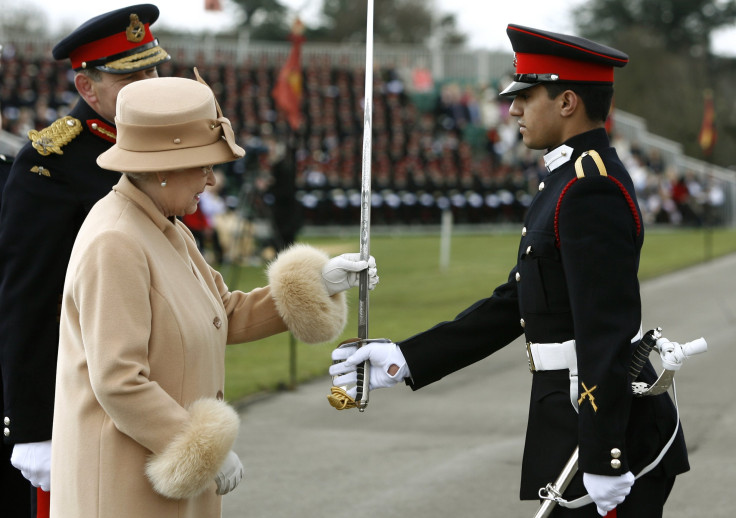Can Queen Elizabeth Legally Kill Donald Trump? Monarch May Be Above The Law In UK Courts

A report surfaced Tuesday claiming that Queen Elizabeth II confirmed she would be able to slay President Donald Trump with impunity during his anticipated visit to the country later this year. The article originated on a satirical website, however, though real legal debate persists over whether the U.K. monarch is above the law.
The story first appeared on satirical U.K. website The Daily Mash, which wrote that Queen Elizabeth's office released a statement confirming her ability to kill Trump with a sword without legal repercussions because "Trump is a subject of the Crown." The article jokingly quotes Queen Elizabeth as saying, "I haven’t made up my mind yet. I might," later adding, "I genuinely can’t think of a reason not to. Anyone?"
While the article has been proven untrue, the question of whether England's reigning monarch can be tried in the country's courts has been a legitimate legal debate for some time. The entire U.K. legal system, as well as law enforcement and corrections department, are based on the monarch's authority. London's police leadership is appointed by the queen herself and officers swear to "serve the Queen," making it a complicated legal situation.
All cases appearing in crown court are titled "The Crown versus..." and are tried as such, meaning Queen Elizabeth technically would be both prosecuting and defending herself.
At least one U.K. man with police experience has said a case against the queen could not happen, even in the case of murder. Guy Croydon told London-based talk show station LBC that, based on his police training, authorities were helpless to stop the queen and that "in theory, she could do what she wants."
The queen is subject to civil proceedings, however, under the 1947 Crown Proceedings Act. While she could not be tried or arrested, she could be sued for killing the U.S. leader. The queen would also likely face repercussions through parliament for her actions. The U.K. legislature system has the ability to strip her of her title, but not to retroactively charge her with a criminal act committed in her public capacity, according to journalist Ian Jackson.
While Queen Elizabeth is not likely to harm Trump during his visit, the president's trip has sparked divisive political discourse in the country. Many in the U.K. were outraged by Trump's recent executive order banning nationals from seven Muslim-majority, Middle Eastern countries from entering the U.S. and have accused him of racially polarizing policies. The U.K.'s parliament will debate whether Trump should visit or not Feb. 20, while ordinary citizens have voiced their opinions through protests and petitions.
The second-most popular petition on the crown's website, with over 1.8 million signatures, has asked Queen Elizabeth to not meet with Trump because "it would cause embarassment." Another petition, with over half a million signatures, demands Trump be blocked from entering the country altogether, while one with over a quarter-million maintains that the visit should go ahead.
Queen Elizabeth invited Trump to visit on the advice of government officials and has not commented on the situation, but her grandson Prince Harry has reportedly voiced his displeasure with Trump. He, however, is subject to the law.
© Copyright IBTimes 2025. All rights reserved.





















